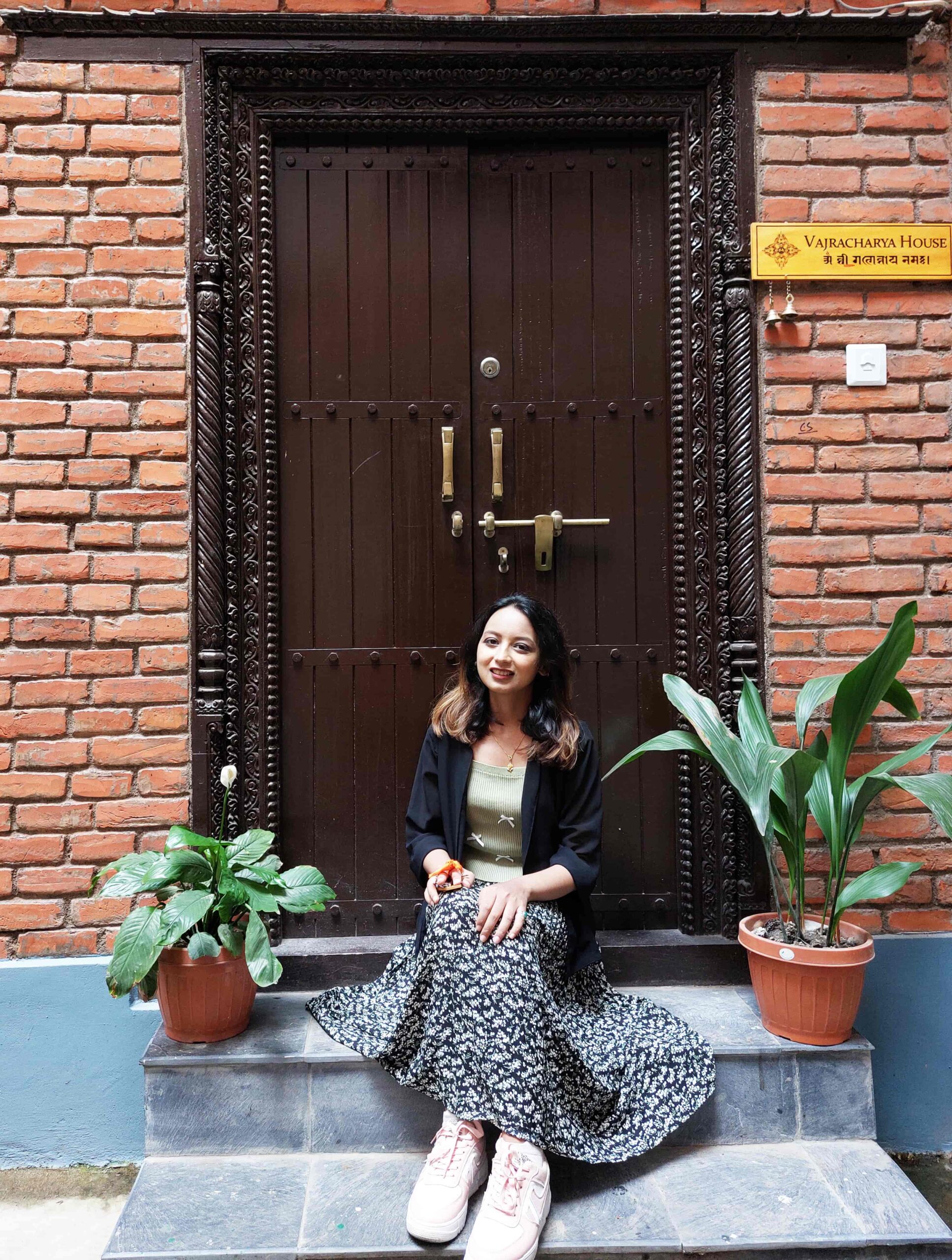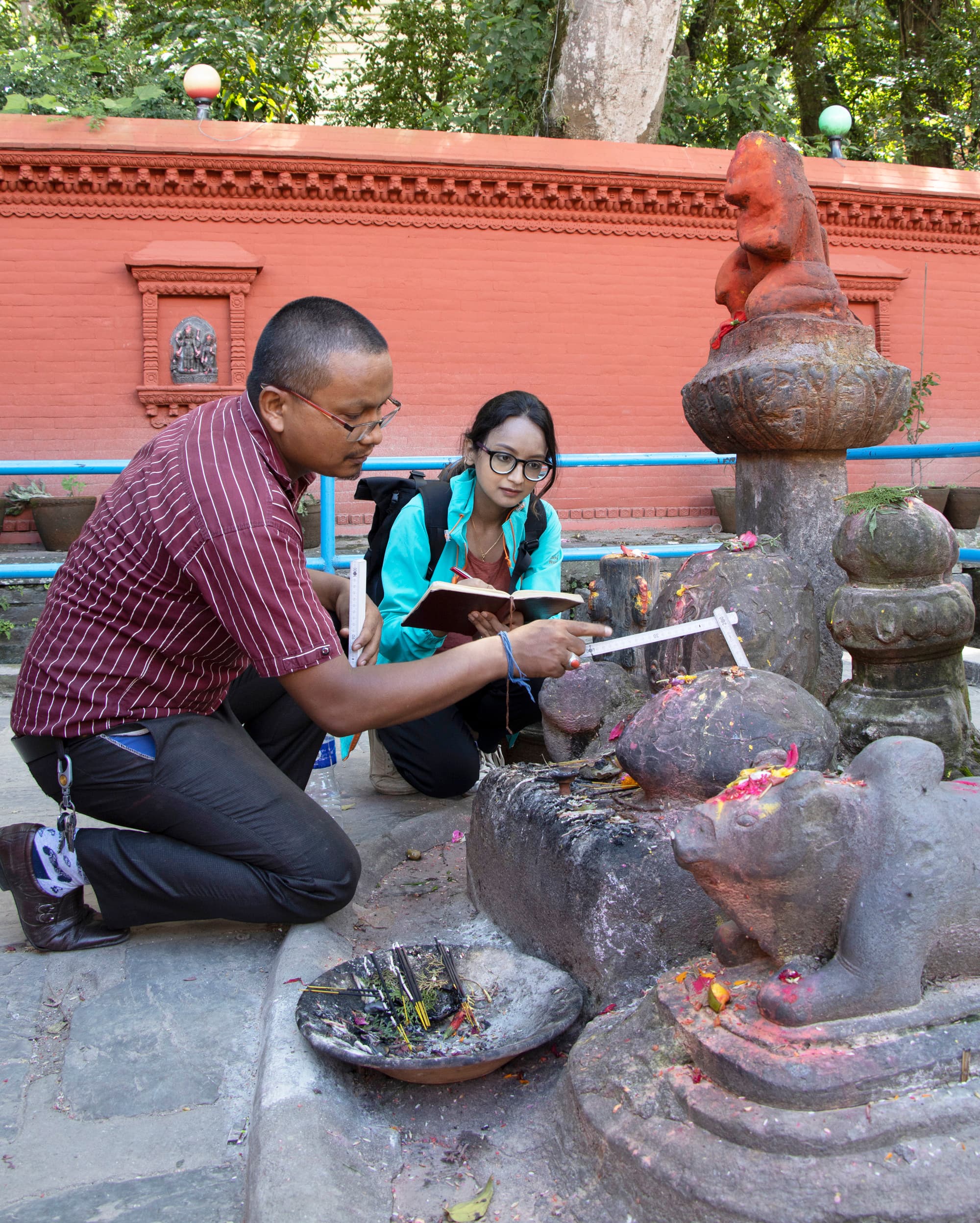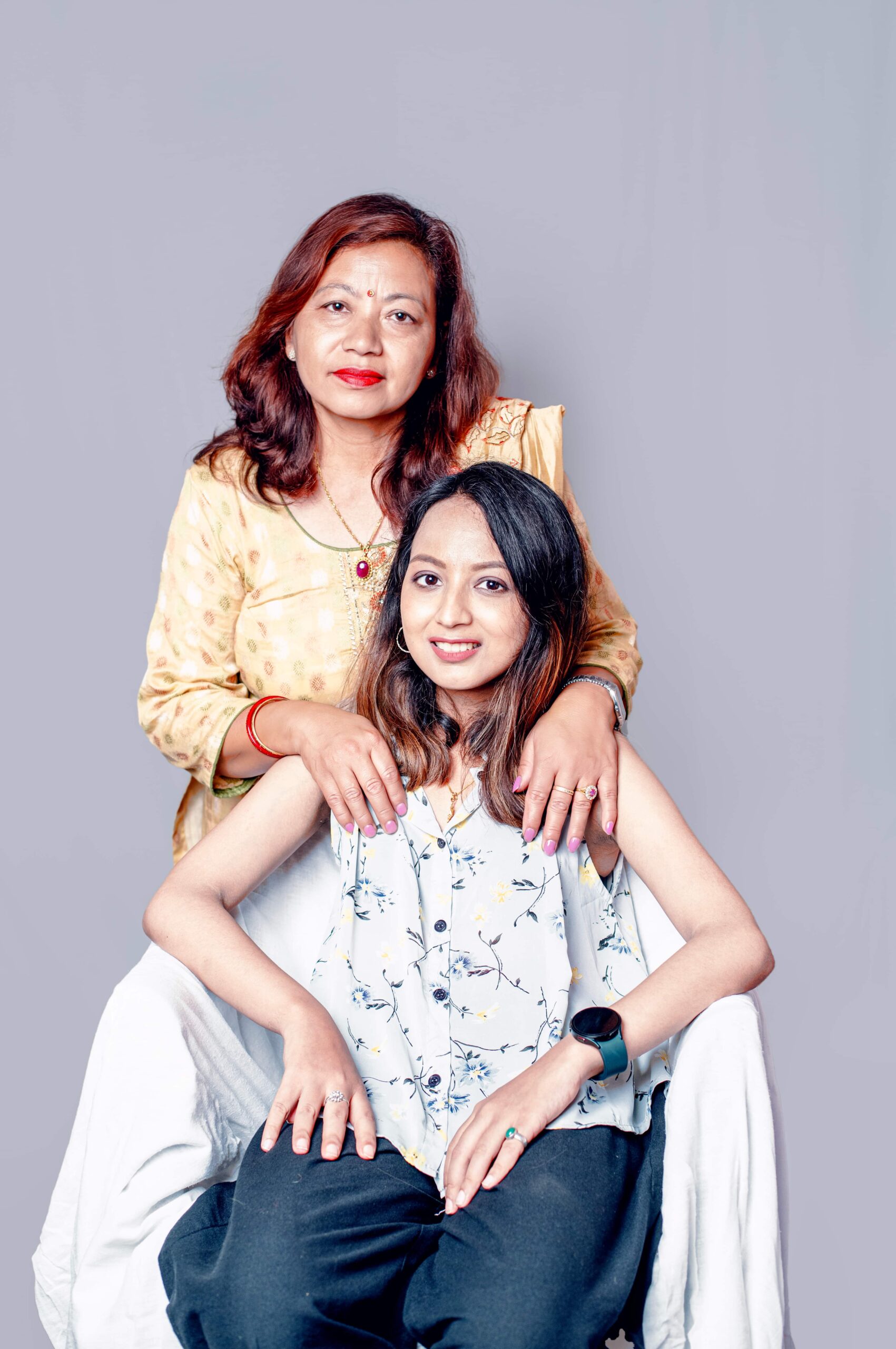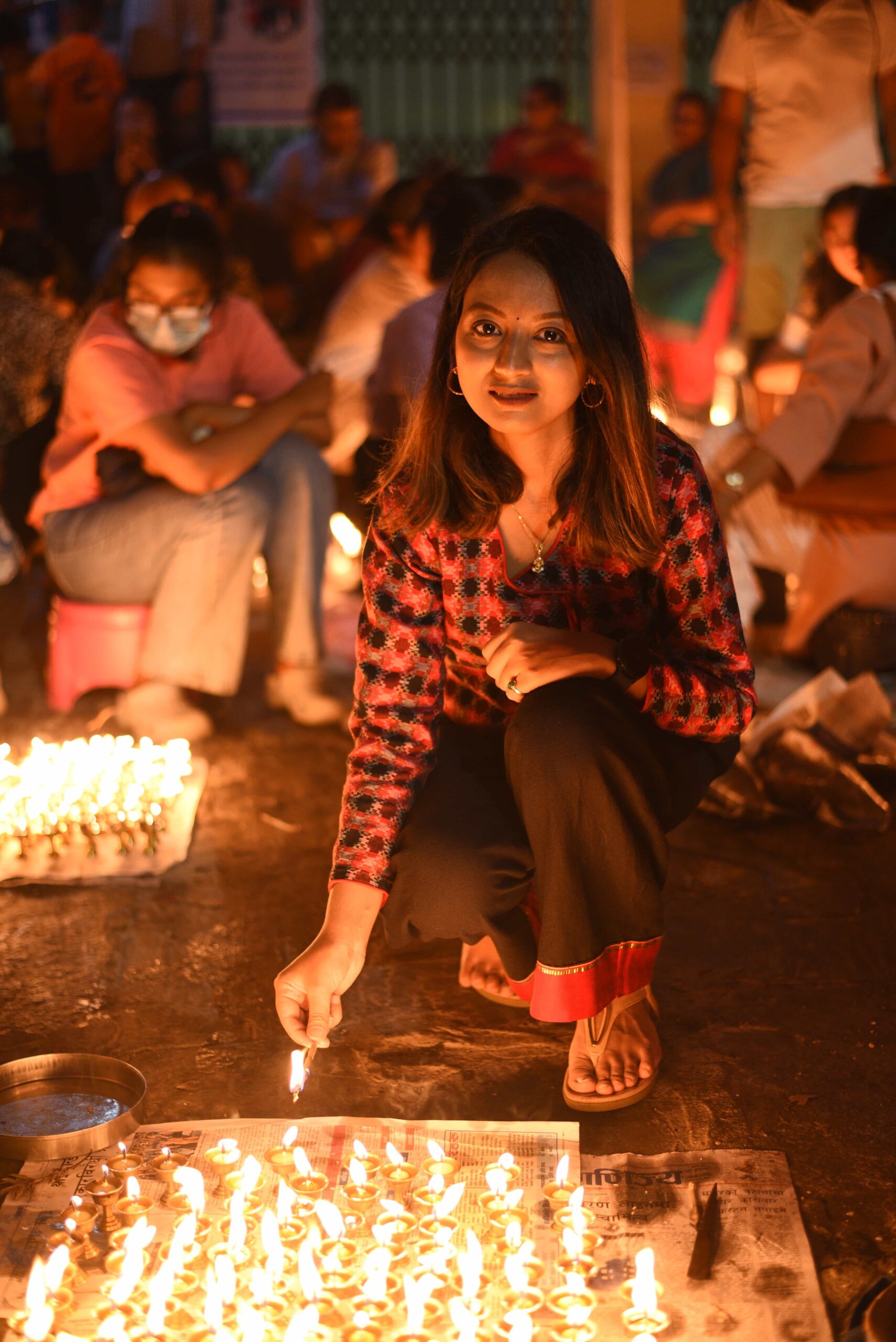Living with lupus is a challenge, but Pabitra shows us that every struggle can fuel a passionate drive to inspire others.
Pabitra Bajracharya serves as a research assistant with the Nepal Heritage Documentation Project, where she specializes in paleography, focusing on the reading and preservation of historical inscriptions and manuscripts. Alongside her commitment to documenting Nepal’s rich heritage, Pabitra is an entrepreneur, running the Vajracharya House.
Living with lupus nephritis since 2010, Pabitra has faced numerous challenges. “Lupus is an autoimmune disease where the immune system mistakenly attacks healthy tissues, organs, and joints, potentially causing permanent organ damage. The past 14 years have been a rollercoaster ride,” dealing with this invisible disability, she shares.
Through her journey, she aims to raise awareness about lupus, an autoimmune disease that affects many, particularly women. By sharing her story, she hopes to educate others about the condition and inspire those facing similar struggles. Pabitra emphasizes the importance of self-advocacy, community support, and perseverance in building a meaningful life despite adversity.

In this inspiring interview with Pabitra, we explore her personal experiences and her efforts to raise awareness about the disease. Her story highlights how she has overcome significant challenges and continues to inspire others.
Share a memorable experience from your work with the Nepal Heritage Documentation Project that has deeply impacted you.
A profoundly impactful experience in my work with the Nepal Heritage Documentation Project was transitioning from technical tasks to learning paleography. With the support and encouragement of my co-workers, who have been like teachers to me, I learned to read Nepali and Newari manuscripts and inscriptions.
This motivation has positively influenced my academic growth. My workplace feels like a therapy center, where I sometimes forget about my lupus. Exploring and documenting unexplored heritage sites during fieldwork has been incredibly rewarding and memorable.
Despite Nepal’s rich cultural heritage, there has not been any recorded documentation until now. As the first team to document and digitize this heritage, we fill a significant gap, bringing pride and invaluable experience. So far, our team has documented more than 1,591 monuments.

Dedicating myself to this important work has been a significant source of motivation, helping me push through the challenges of lupus and boosting my self-esteem. Heritage is essential as it preserves a community’s identity, culture, and history, offering insights into the past and fostering a sense of pride and continuity.
Despite my lupus, I am dedicated to this important work, knowing that preserving our heritage ensures future generations can connect with and learn from their rich cultural legacy. Contributing to my country’s history and heritage while managing a chronic illness and receiving immense support from colleagues has been both fulfilling and impactful.

How do you balance your responsibilities as a research assistant and an entrepreneur, especially while managing your health condition?
Balancing my roles as a research assistant and an entrepreneur, all while managing my health condition, requires a collaborative effort and significant support. I have always been a hardworking and dedicated person, both before and after my illness. Though my health has made me physically weaker, my strong determination has never wavered.
Fortunately, my workplace offers the flexibility to work from home when needed, and my co-workers are incredibly supportive of my entrepreneurial endeavors. I launched a small business in April 2024, handling investments, guest management, and marketing. Despite physical challenges, I push myself to work as much as I can, earning immense trust and belief from my supervisor, which further motivates me.
My family plays a crucial role in supporting me both practically and emotionally. They assist with various tasks, allowing me to concentrate on my responsibilities. Their support is invaluable in helping me manage my duties effectively. Vajracharya House has been a dream project.
I established this business in the small town where I was born and grew up, aiding local tourism. It has contributed to the growth of other tourism-related businesses like restaurants and shops, and heritage recognition in my community. Knowing my aspirations, I have received immense support from my family.
With this strong support system and my dedication, I can effectively balance my responsibilities, ensuring that neither my work nor my health is compromised.

What has been the most challenging aspect of living with lupus, and how have you overcome it?
Living with lupus presents numerous challenges across social, mental, physical, financial, and emotional dimensions. Chronic pain can be disabling, and medical treatments are expensive and often come with side effects like depression.
The invisible nature of lupus has led to hurtful misunderstandings and emotional sensitivity, resulting in crying spells, insomnia, shivering, and sadness. Overcoming these challenges was tough initially, but I learned to ignore hurtful comments and focus on my well-being.
For mental health, I consult a psychiatrist, travel for well-being, visit spiritual places, and seek support from loved ones. Financially, my parents helped when I was unemployed, and my job now supports my treatment. During severe pain, I take leave from work, and my mother cares for me, staying by my side during hospitalizations and unbearable pain.

When I suffer from insomnia, she stays up with me through the night. My mother’s unwavering support, my faith in God, and sheer perseverance have been crucial in overcoming these challenges.
Lupus has imposed many restrictions on my life. I cannot eat whatever I like due to food allergies, but my mother always tries her best to cook me healthy food. This ongoing support from my family and my determination to push through has helped me navigate the complexities of living with lupus.
Over time, I have developed immense willpower and now have faith in the universe. These help me cope with the pain. Physical pain is not easy to overcome. During these times, I stay at home, avoid stress, use hot bag therapy, and pain reliever ointment, and take a day off.Tolerating the pain is hard, but I keep faith and hope, believing that it shall pass soon as I have no other option.
Living in Lalitpur, the city of gods, spirituality surrounds me. Before lupus, I never paid much attention to these aspects of life. However, spirituality has become a guiding light, teaching me to stay positive and embrace acceptance—essential for managing lupus, which demands immense patience.

Despite enduring severe pain, I haven’t given up, holding onto hope for better days. Yoga introduced me to meditation and stretching my body which is good for arthritis, emphasizing the importance of mental strength in coping with physical weakness.
Spending time in nature and traveling have become my sanctuary, offering a deep connection and respite from daily struggles. Even when painkillers fail, faith and prayers provide solace, reminding me that pain is temporary.
Seeking blessings from nuns and spiritual leaders at monasteries, I find comfort in their teachings. I’ve come to understand that life has both bright and dark phases, making acceptance a must. Through spirituality, I’ve learned to navigate these phases with grace, finding strength and peace in the journey.
What advice would you give to others who are living with chronic illnesses and striving to achieve their professional and personal goals?
Living with a chronic illness like lupus is undeniably challenging, but acceptance is key to managing these difficulties. Embrace patience and maintain a positive outlook. Engage in activities that bring you joy and a sense of purpose. For me, preserving knowledge about heritage has been a meaningful distraction from lupus and a way to combat depression.
While it may be tough to stay upbeat, finding contentment in small things is crucial. Although hiking may not be an option, I still enjoy walking and appreciating life’s simple pleasures. Seek support and find comfort in solitude when needed; for example, my pet offers therapeutic relief, and even in times of sadness I find happiness in my pet.
Work can be beneficial both financially and mentally, but be mindful not to overwork yourself, as stress can worsen lupus symptoms. Remember, no job is too small or too big—find happiness in what you do. Prioritize satisfaction with life and self-care, placing professional goals afterward. Keep faith in the universe and cherish every moment. Despite lupus, I’ve never stopped moving forward because life goes on. You can slow down and rest when needed, but never give up.
Finding a job can be challenging with lupus. If possible, consider starting a small business. In the workplace, seeking support from your supervisors is essential. Never hide your condition at work. When you have lupus, your priority should be health, then work. Do work for your happiness and financial support, but never compete with others. Be satisfied and happy with your journey.

Awareness
Finally, I want to highlight the importance of making lupus more visible because living with it is incredibly challenging. Due to the high cost of treatment, many patients need to work while managing their condition.
If you have lupus patients in your workplace or community, please offer them your support. Remember, they may not always appear sick, so avoid making judgments, as this can deeply impact them.
During my hospital visits, I’ve encountered many individuals with autoimmune diseases, all of which are difficult to live with. Life with an autoimmune disease is rarely smooth, but it’s important to stay strong and keep fighting. Raise awareness about these conditions as much as possible. Give autoimmune disease patients positive motivation
Heritage keeper by day, lupus warrior by night—Pabitra’s story is one of unwavering determination and community-driven success. Lupus may challenge her body, but it cannot dim the light of her spirit—Pabitra Bajracharya is a beacon of hope.

